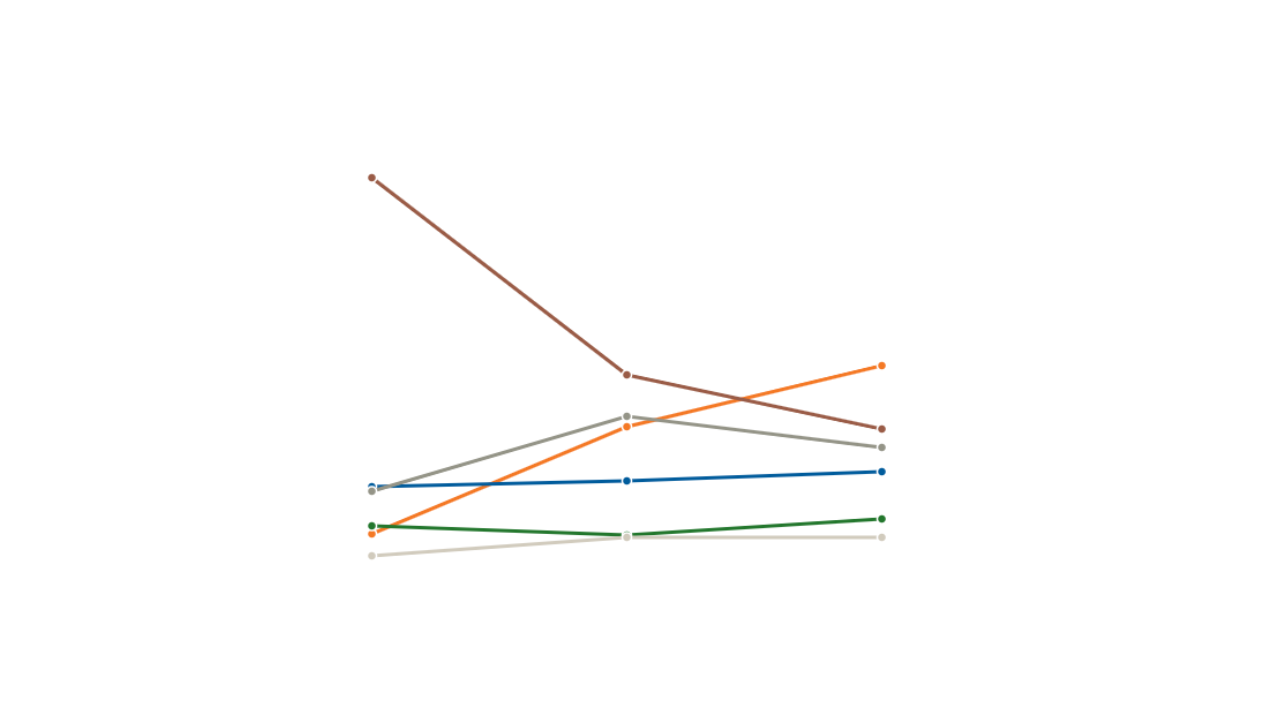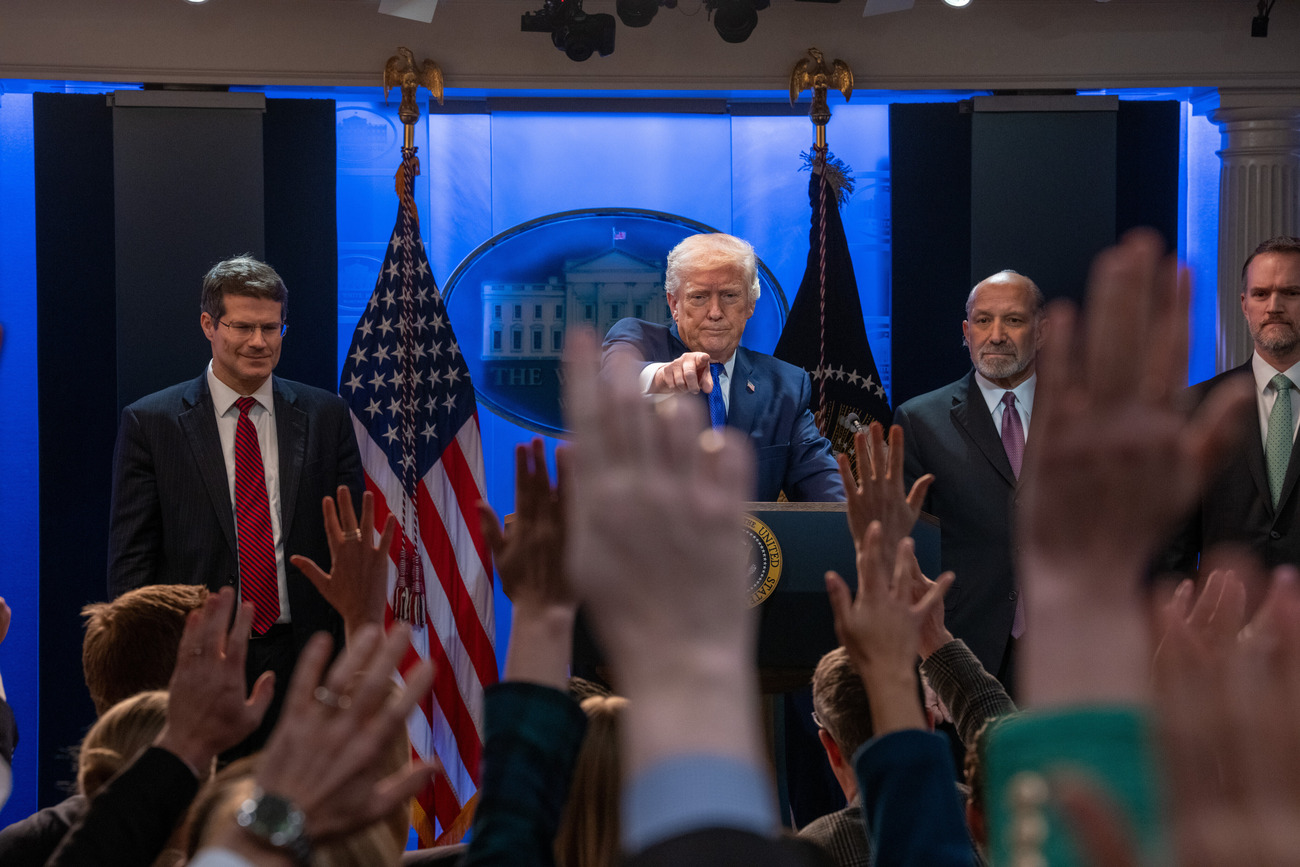Andean FTAs: Chief U.S.-Colombia Negotiator Analyzes the Agreement\'s Implications
Andean FTAs: Chief U.S.-Colombia Negotiator Analyzes the Agreement\'s Implications
Hernando José Gómez highlighted the benefits of increased market access and explained the domestic and international reaction to the agreement. He pointed out that opening an economy to international markets brings greater growth and a reduction in the income gap with richer countries.
Interview with Hernando José Gómez
Chief Colombian Negotiator for the U.S.-Colombia FTA
Ministry of Commerce, Industry and Tourism of the Republic of Colombia
June 9, 2006
In May 2004, the U.S. began free trade negotiations with three Andean countries - Ecuador, Peru and Colombia. While negotiations with Ecuador have been suspended since late March, Peru signed a free-trade agreement (FTA) in April, and Colombia finished the bulk of negotiations in February.
To more thoroughly analyze the FTA between the U.S. and Colombia, the Americas Society and Council of the Americas (AS/COA) interviewed Mr. Hernando José Gómez, Chief Negotiator for the Republic of Colombia. Mr. Gómez shared his perspective on the content of the agreement, the possibilities for its implementation, and the need to emphasize strides in Colombian labor reforms to diminish any possible skepticism in the U.S. Congress. Mr. Gómez also spoke about the FTA in the context of relations among the countries of the Andean Community. AS/COA conducted this interview prior to Mr. Gomez’ speech at our annual conference, organized in collaboration with ANIF and Fededesarrollo, on June 14 in Bogotá, Colombia.
AS/COA: What are the benefits for each country of the free-trade agreement (FTA) between Colombia and the United States?
Gómez: First of all, these agreements provide an effective means of promoting a stable environment without barriers for trade and investment. This guarantees access for our products and services to the larger global market.
The FTA will allow the country’s economy to grow, commercialization of domestic products will increase, and more and improved opportunities for business and employment will be generated. The challenge involves modernizing production and reducing unnecessary bureaucratic procedures. The objective is to improve the well-being of the population and promote the creation of new businesses by domestic and foreign investors.
In addition, the careful implementation of this type of project is important for maintaining and increasing Colombia’s advantages with regard to other countries in the region. If these other countries enjoy preferential market access treatment, Colombia cannot lag behind because it would be very detrimental to our economy.
The FTA that was negotiated presents great opportunities for Colombia in all economic sectors. In terms of agricultural goods, an important agreement was reached on sanitary [animal health] and phytosanitary [plant health] issues, which, together with the lower duties, creates greater access for more of our products.
In the industrial sector, we received immediate access for 99.98% of the products on the tariff schedule. We will be lowering duties on 82% of these products, which will greatly improve our production competitiveness since the majority of these products are capital goods or raw materials and are not manufactured in country. The negotiation protects sensitive areas such as used and remanufactured goods and opens opportunities for our small and medium-enterprises (SMEs) to enter new markets.
On the subject of professional services, an area of great importance and competitive advantage for Colombia, national treatment was achieved; in other words, there is no discrimination against our professionals because of their nationality. To complement this, we reached an agreement to establish a committee for facilitating recognition of professional titles. No country had previously achieved this type of agreement during FTA negotiations with the United States.
Along these lines, important achievements must be pointed out in other areas such as government procurement, customs procedures, telecommunications, rules of origin, intellectual property, and dispute resolution.
AS/COA: What are your thoughts regarding the possibility that the Colombian Congress will approve the FTA within the next few months? In your opinion, how should any possible uncertainties regarding the FTA be resolved in the U.S. Congress so that it can go into effect during the first half of 2007?
Gómez: We hope to sign it in September in order to present it to the Congress of the Republic, and subsequent to the mandatory debates and congressional oversight, for it to be approved in December.
Regarding approval by the U.S. Congress, it will be very important to demonstrate the trade benefits of the agreement, which are quite substantial. The Colombian market is larger than the entire Central American market, allowing for a greater impact in terms of business and investment possibilities.
Also, it will be necessary to mitigate concerns regarding labor relations in Colombia. In recent years, Colombia has achieved great progress in guaranteeing the rights of workers and union leaders. Government, workers and the private sector have just reached a consensus working plan at the International Labor Organization (ILO), resulting in Colombia’s removal from the ILO’s closely monitored “black list” of countries that violate workers’ rights. Additionally, an ILO office will be opened in the next few months in our country. They will be collaborating with us to achieve the agreed-upon objectives.
As President Uribe has mentioned, Colombia seeks great progress, sustainability and continued improvement in this area.
AS/COA: To what extent is there continuity between this FTA and the provisions established in the Andean Trade Promotion and Drug Eradication Act (ATPDEA)?
Gómez: Up until now, preferential access by Colombia to the United States has been regulated by ATPDEA conditions. This instrument has been very positive for the development of certain export industries such as flowers, tobacco, cigarettes and some types of clothing. However, it is a limited instrument. Being unilateral and temporary, there is great uncertainty about its stability and, as a result, it does not offer adequate incentives for generating long-term export possibilities. Its renewal represents significant costs not only for government but also for businessmen.
A mechanism such as the ATPDEA is limited to a subset of goods and its provisions do not have enforcement mechanisms. With the FTA the preferences granted in the ATPDEA are consolidated and cover not only the area of goods but also of services. In addition, the FTA includes commitments in the areas of investment and intellectual property. It is an agreement in institutional terms that has the tools to facilitate compliance with the agreed upon obligations and, consequently, brings greater legal assurance for the parties. This institutional component is extremely important for the country and offers incentives to modernize our institutions.
AS/COA: The concept of free trade, especially in regard to agreements signed with the United States, has faced many challenges recently. What is the Colombian Government doing to diffuse any type of resistance in Colombia (specifically in the agricultural sector) and how might other countries use this methodology?
Gómez: We are very pragmatic. This agreement provides new opportunities. We must free ourselves from ideologies and realize that economies that have opened most to international (globalized) markets were those that grew most in recent decades (over 6% annually). This has allowed them to close the income gap with the richest economies on the planet. To be successful in this, trade agreements are required.
Our process has always been participatory and transparent process. This has brought constant communication with all sectors, contributing to the creation of agreements and consensus.
Additionally, now that we have finalized negotiations, we find ourselves in the midst of an information sharing process about what we have agreed. The goal is to share the substance of the agreement with the country and the advantages that it will bring for the country, along with the challenges that we face ahead.
AS/COA: Given the opposition to the agreement found among some members of the Andean Community, what do you think about the future of CAN with some members negotiating free-trade agreements with the U.S.?
Gómez: Colombia has always made it clear that one of its priorities is integration with the Andean countries. Integration achieved in the framework of the Andean Community is highly valued by our country and, consequently, we were always emphatic with the United States regarding the need to protect the Andean order. The FTA was negotiated so that it would not affect Andean regulations as recognized by the Secretariat of the Community.
About two years ago member countries of the Community accepted carrying out joint or separate negotiations with third countries, as long as Andean regulations and sensitivities of other countries were respected, and clear information presented about the substance of such agreements. We have faithfully complied with these requirements and, for this reason, CAN-FTA compatibility is stipulated in the text of the agreement’s preamble.
Therefore, Venezuela’s threat to withdraw from the Community because the negotiation with the United States is incompatible with the Andean regulations has no real basis. However, the challenge is to create the most favorable scenario possible to preserve these relations that have brought so many benefits to all Andean countries.








